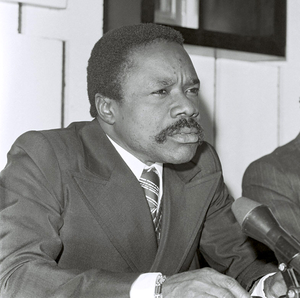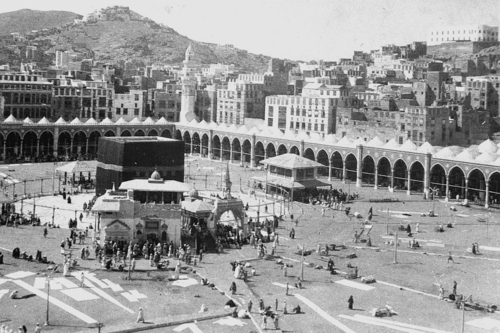From its origins, Islam enjoyed extraordinary fortune. Mohammad left Mecca as a fugitive in 622 and by 630 he returned in triumph to rule the city. Within a century, the Arabian conquests brought a vast stretch between the Atlantic and China under Muslim control.
Through the medieval period, the Muslim heartland in the Middle East was more wealthy and powerful than all its neighbors, including Europe, sub-Saharan Africa, and Hindu India; and Muslim expansion, both military and religious, continued until the 17th Century.
Muslims were almost everywhere dominant. Hardly ever were they persecuted. Prosperous and powerful, the Muslim community perceived worldly success as a sign of God's favor. Religion and success confirmed each other, creating an important psychological link between the two.
As a result of this link, the many defeats and humiliations that Muslims have endured since the 18th Century have been severely trying. European technology, political ideals, military organization, economic structures, and cultural forms have overturned their traditional ways. As country after country fell to Christian European control and influence, Muslims faced a unique dilemma. If God indicates his favor through worldly success, why are the Europeans supreme? Anguished self-examination followed.
Serious Muslims set out to explain why God's favor had shifted or to disassociate religious faith from worldly success. Yet until now, Muslims have not answered this question; persistent poverty and powerlessness has been the source of great spiritual torment.
----------
Then in the 1970s came the oil boom. Suddenly, Muslims could stand up to their Christian nemesis. The long slide downwards stopped, as some Muslims again enjoyed the wealth and power which was their due as God's community.
The oil boom marked a turning point in Muslim consciousness; more than anything else, it prepared the way for the widespread Islamic political activities visible today. The psychological importance of this event for Muslims cannot be overestimated, as even those suffering from the oil price jump take heart in this shift of wealth and power away from the Western world.
What relation does the oil boom have to Islamic self-confidence? Oil and Islam are associated on three levels:
 Albert-Bernard Bongo of Gabon became El Hadj Omar Bongo Ondimba in 1973. |
(2) All the countries with large oil deposits and small populations are Arabic speaking; Kuwait, Libya, Qatar, Saudi Arabia, and the United Arab Empires have revenues which far exceed the mundane daily needs of their peoples. These states can dispose of revenues in more elaborate ways: fashionable foreign estates, ultra-modern medical facilities, and imported icebergs for drinking water are some of the favorite schemes for soaking up revenues. The fact that Arabs are most closely associated with Islam (they speak the language of God) heightens the perceived connections between this religion and oil wealth.
(3) Among these rich Arab countries, Saudi Arabia stands out by virtue of its reserves and its close connection to Islam. Its petroleum reserves far exceed those of any other country's. Its Islam also has no peer. As the only Muslim government never to deviate from a strict Islamic ideology in modern times, as rulers of Mohammad's homeplace, Keepers of the Holy Places (Mecca and Medina), and as the only country with a 100 per cent Muslim citizenry by law, Saudi Arabia symbolizes Islam in power.
 Mecca as it looked before Saudi modernization and gigantization plans began. |
----------
The sequence OPEC-wealth-superwealth would seem to indicate that one must be Muslim to export oil, Arab to live high off it, and Arabian to become fabulously rich.
In addition to this three-fold connection between oil and Islam, the largest price increases occurred at the time of the October 1973, Arab-Israeli war, when the Arabic-speaking Muslims felt they had finally stood up to the hitherto invincible Israeli enemy. Although the war and the price rises were not directly related, their simultaneous occurrence gave many Muslims a feeling of exultation, a rediscovered sense of their own strength.
As a result, for many Islam is inextricably bound to the oil boom; the wealth and power oil has Islamic implications, confirming God's favor and heralding the return to a world more correctly ordered.
The power of OPEC and the wealth of the Arabs answer a deep Muslim need for a sign of God's favor and the continued validity of their faith. It is appropriate that Arabs benefit most from the oil boom; just as they were the first Muslims in the 7th Century, today they lead the way from poverty and Western domination.
----------
The effects of the oil boom in confirming Islam are very extensive but unmeasurable. It is not possible to explain Islamic movements by it, yet many have been encouraged by the new wealth, power, and prestige of oil-rich Muslims.
Thus, a leader like Khomeini evokes a deep response in Muslims everywhere, from Morocco to the Philippines.
Daniel Pipes teaches Islamic history at the University of Chicago.